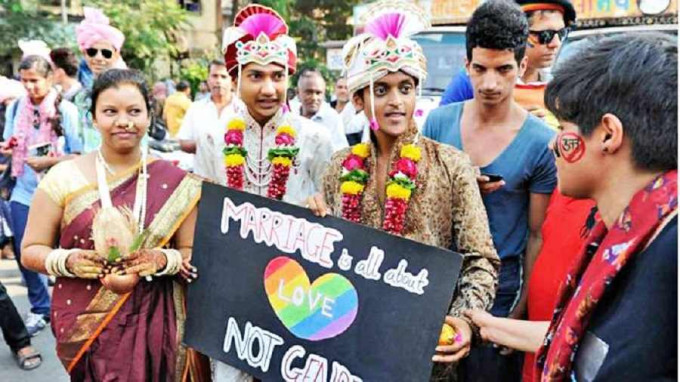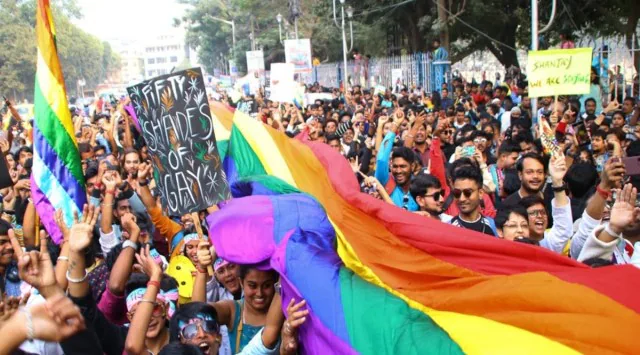Lavender marriages in India: A compromise of love and identity
Lavender Marriages in India: As Pride Month unfolds globally, celebrating the strides in LGBTQ+ rights and the ongoing fight for equality, it brings into sharp focus the unique challenges faced and navigated by the community in various cultural contexts, where societal expectations and legal constraints often intersect and complicate their lives.
In India, where tradition often trumps individual expression, LGBTQ+ individuals continue to navigate a complex social landscape marked by both progress and persistent barriers, one of them being marriage equality.

Despite the landmark decriminalisation of homosexuality in 2018 through Article 377, however, acceptance and recognition of same-sex marriages and partnerships remain a contentious and distant dream for many, as last year in October 2023, a five-judge Constitution Bench of the Supreme Court rejected to legalise same-sex marriages.
The rise of lavender marriage
Fueled by societal stigma against homosexuality, lavender marriages have become a prevalent reality in India and among the South Asian diaspora. The 2022 movie Badhaai Do, which tackles the theme of lavender marriages, has further ignited a public conversation on it in India.
“Lavender marriage,” coined during the early 20th century, refers to a secret male-female mixed-orientation union undertaken as a marriage of convenience to conceal the socially stigmatised sexual orientation of the partner(s) and grant them access to the legal, social, and financial advantages that come with it.
Often, it is a means to circumvent societal disapproval. “Lavender marriages often arise from a lack of widespread acceptance of LGBTQ+ identities, which leads to societal pressure to adhere to heteronormative standards, the fear of ostracisation, the desire to maintain familial honour and limited legal recognition of same-sex relationships,” said Anweesh Sahoo, lead technical artist at Aristocrat Gaming, and winner of Mr Gay World India (2016), stating the reasons behind the rise of such marriages in India.
The implications of a lavender marriage
 Having several implications, lavender marriages underscore the need for greater societal acceptance and understanding of diverse sexual orientations. (Representational image)
Having several implications, lavender marriages underscore the need for greater societal acceptance and understanding of diverse sexual orientations. (Representational image)
Can a lavender marriage stand the test of time, as it is rarely the preferred choice of a queer individual. Often, it’s the last resort.
“My partner was being kicked out of the house late at night because of his sexual orientation, which was a harsh reality check. So, living as a gay person in India is a rollercoaster ride. From constant pressure from society to conform to traditional norms to family expectations, legal gaps, and workplace discrimination, the challenges are endless, with the fear of judgement always lurking,” says Ketan Bajaj, AVP, Nat Cat Specialist.
“The need to maintain a façade and live a double life can lead to stress, anxiety, and depression. The internal conflict between personal identity and societal expectations can result in feelings of isolation, guilt, and hopelessness, which can erode self-esteem and lead to long-term psychological distress over time,” said Sahoo.
Talking about her personal experience, a 35-year-old woman, who chose to remain anonymous, shared with us, “I was hopeful when my parents arranged my marriage, but after a few years, I discovered my husband was gay. I felt so hurt and betrayed—how could he have gone along with this sham of a marriage? Empathising with him, I tried to make it work, where we would stay together publicly but have our own private lives. But the constant family expectations, struggle, and lack of true intimacy were too much, leading us to part ways.”
That’s precisely what Saurabh Kirpal, a senior advocate and an LGBTQ rights activist, inferred in his argument before the court: “If non-heterosexual [people] are prevented from marrying, what happens? In our society, lavender marriages would occur. Two lives would be ruined.”
The road to equality
“India’s Article 377’s repeal was a milestone, but the journey continues. Acceptance, legal reforms, and societal change require persistent efforts,” said Bajaj. The community hopes that India will move towards greater acceptance and inclusive policies that recognise and protect the rights of LGBTQ+ individuals in all aspects of life, therefore ensuring that all individuals can live authentically without resorting to such compromises.
 India has made progress in recognising LGBTQ+ rights, but there are still challenges to overcome. (Express file photo)
India has made progress in recognising LGBTQ+ rights, but there are still challenges to overcome. (Express file photo)
Disclaimer: The copyright of this article belongs to the original author. Reposting this article is solely for the purpose of information dissemination and does not constitute any investment advice. If there is any infringement, please contact us immediately. We will make corrections or deletions as necessary. Thank you.
